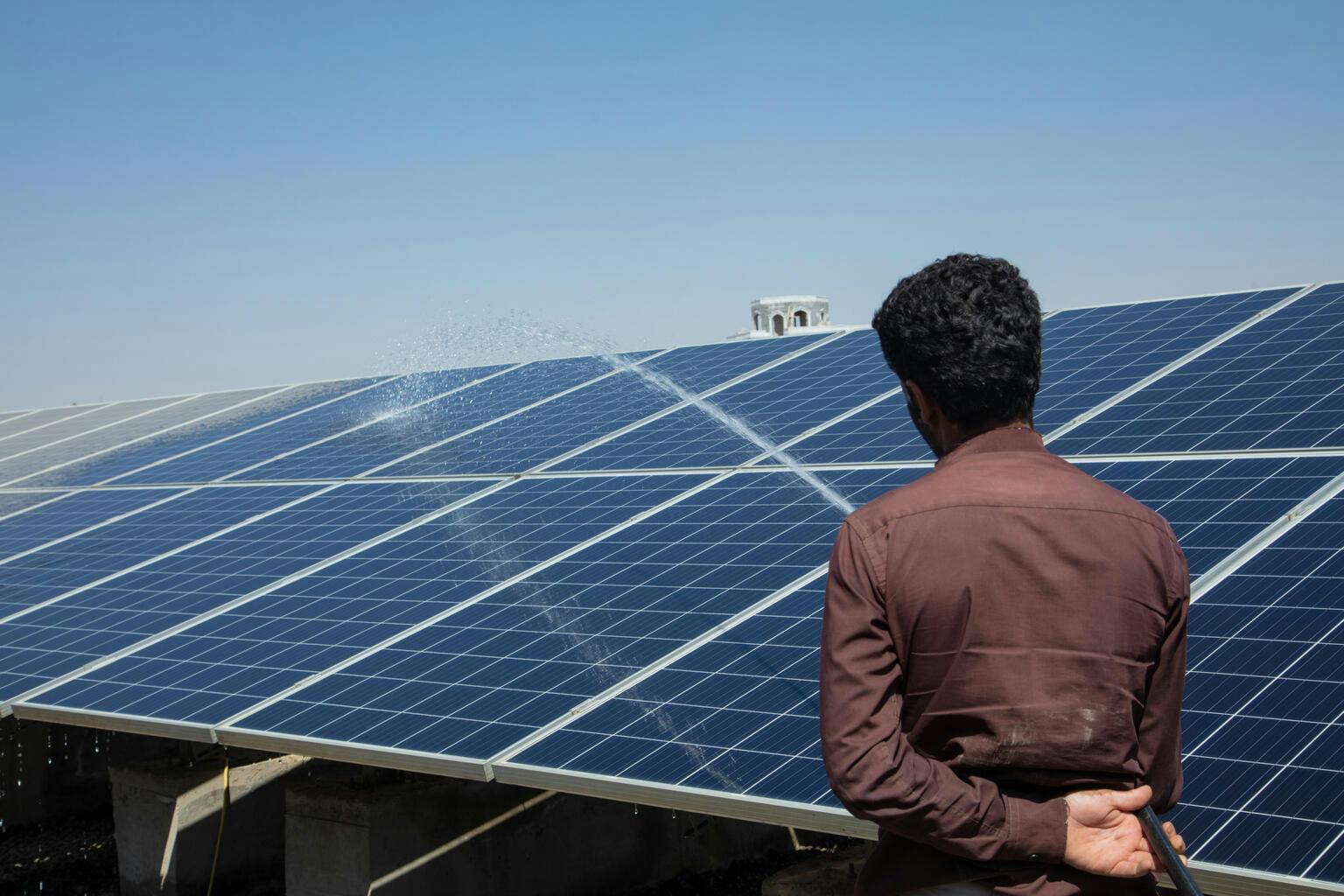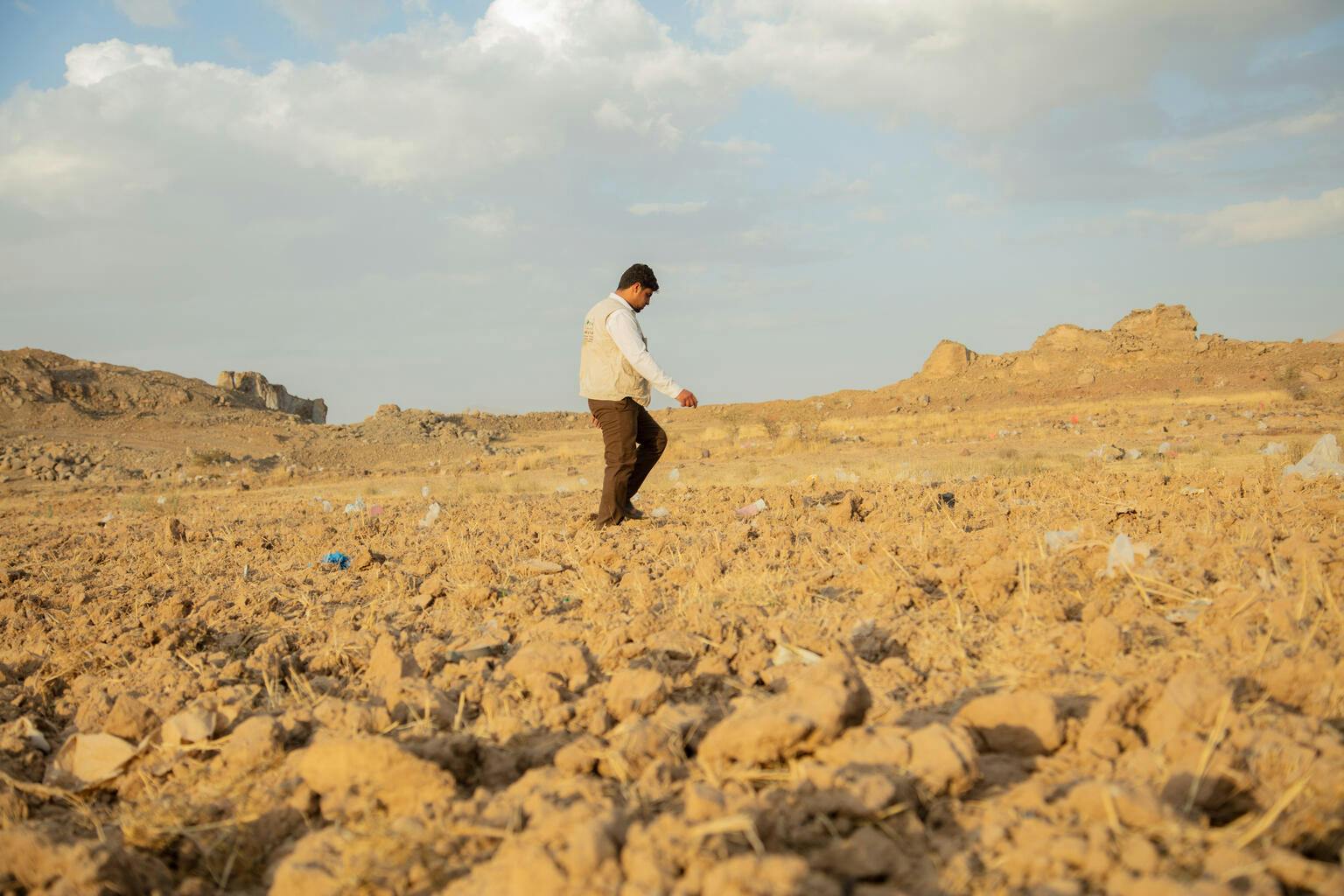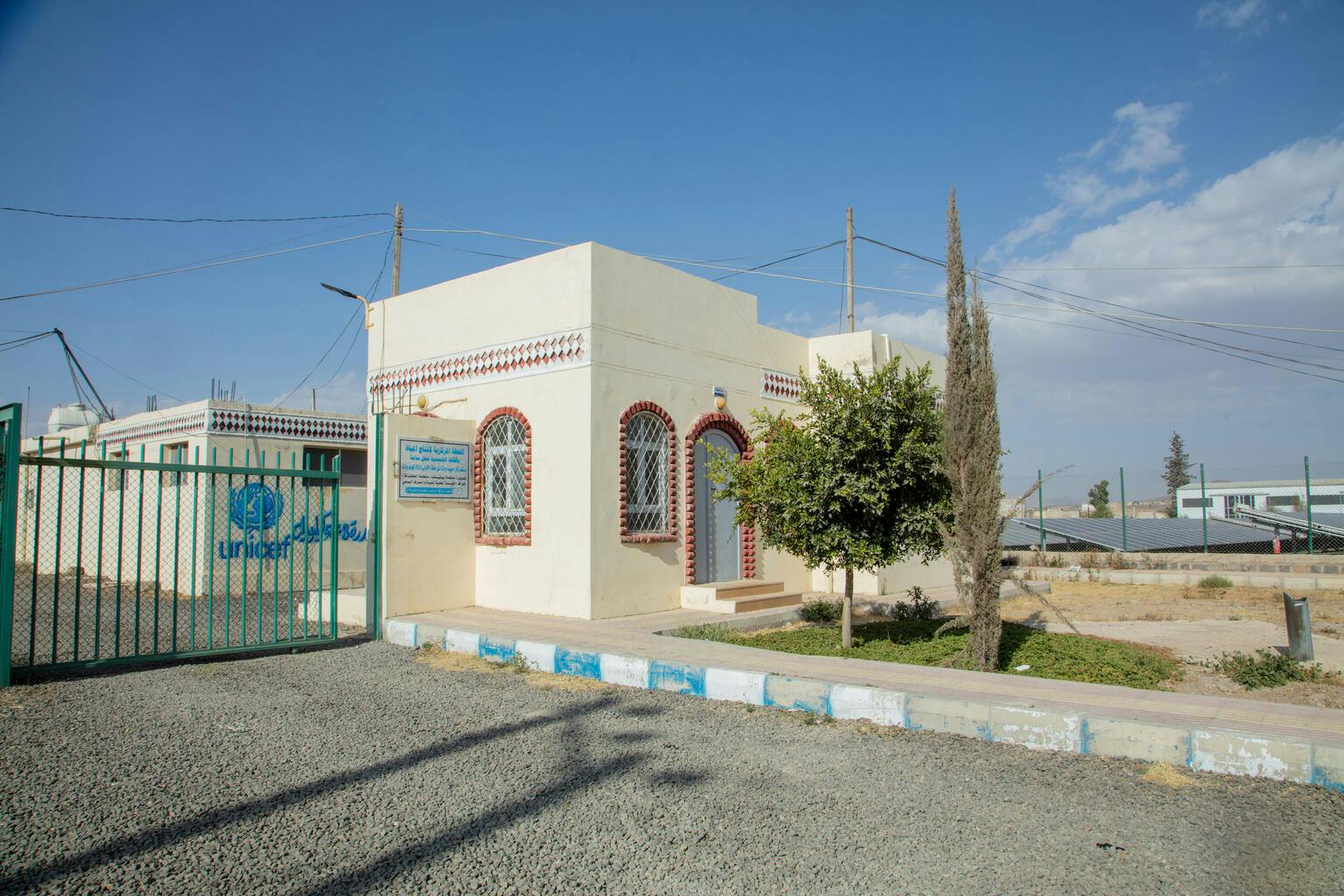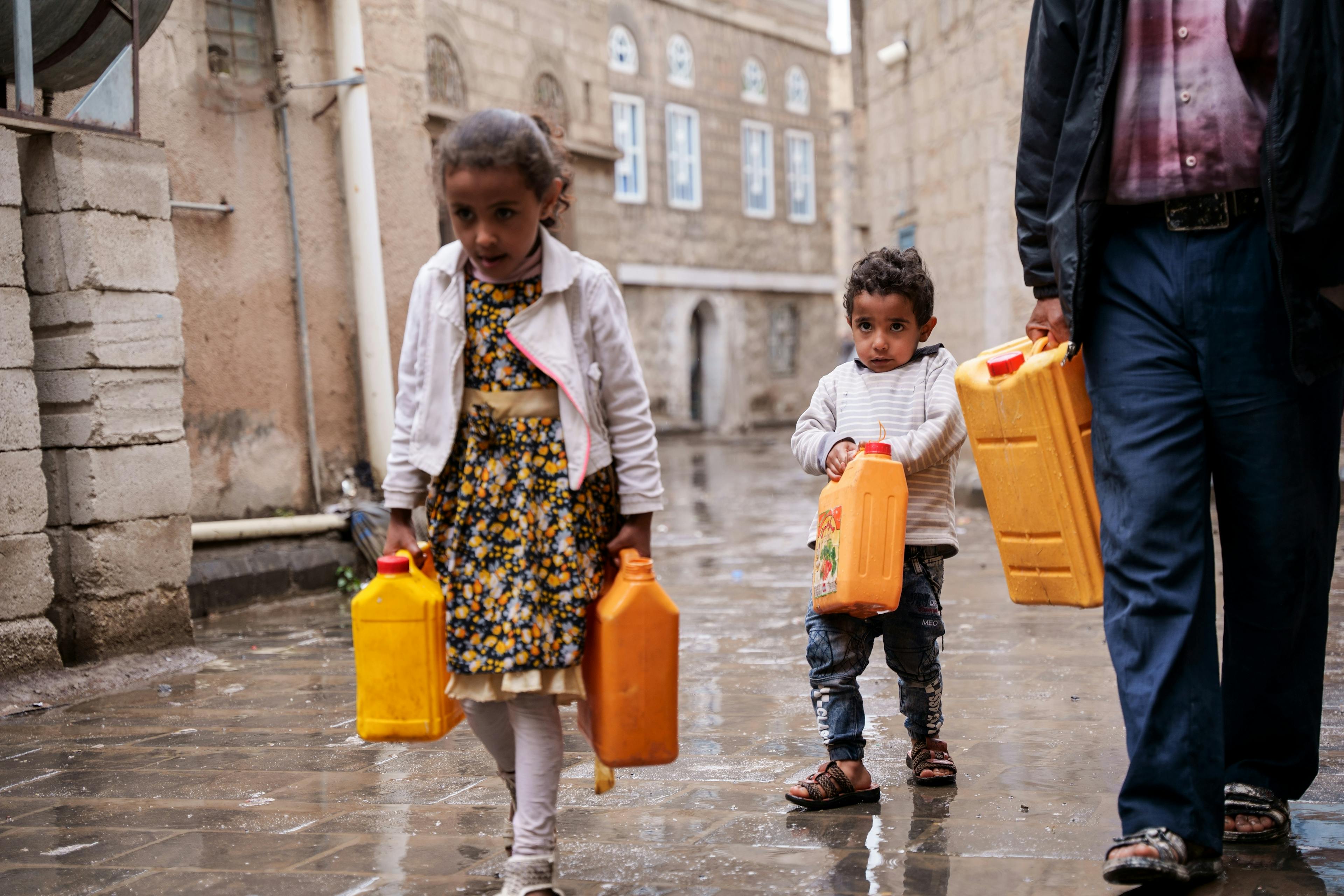
Game-changing access to safe water in Yemen - Part 1
Home
Stories
Game-changing access to safe water in Yemen - Part 1
The Dhamar Water Solar tower is a prime example of UNICEF’s innovative work globally that aims to merge the generosity of donors with some of the best experts in the fields of sustainable technology.
In the first of this 2-part series we look at the exciting innovation UNICEF and partners have developed in response to Yemen’s humanitarian crisis.
Without a doubt, climate change is the biggest problem we face today. An unrelenting, collective threat to our survival that’s not an easy one to solve. Dwindling natural resources, over-consumption, the devastation of colonialism and extreme weather conditions have set the stage for ongoing political and social upheaval around the world. The knock-on effect of all of this is surging humanitarian crises in recent years, ones that UNICEF is on the frontlines of everyday.
For 77 years, we've worked to establish a global network of experts and partners in 192 countries, learning a few key things along the way... Specifically, there's no quick fix to solve the many problems facing people living on the frontlines of crises. What's needed are sustainable solutions for the long game kind of change.


Scientists the world over have been ringing the alarm for decades now, that the only way to avert a climate catastrophe is to reduce greenhouse gases and CO2 emissions by transitioning from fossil fuels to renewable energy.
But this is no easy feat. High-income countries are better positioned to do this and whilst many have done great things in this regard, access to the required technology and skills has not been as easy for lower-income countries, many of which face the brunt of the climate crisis… But in war-torn Yemen, communities are proving these arguments wrong.
Yemen's multilayered crisis: an opportunity to change the game
In 2017 amidst an escalating conflict, a blockade of Yemen’s crucial port in Hudaydah disrupted the delivery of fuel and other essential supplies to the country. The blockade occurred as Yemen, already one of the world’s most water-scarce nations, was starting to see the very real impacts of climate change.



On top of this, the impact of this situation on our humanitarian efforts in Yemen was felt almost immediately and lasted for many years.
That was until, out of necessity, UNICEF and partners came up with a fossil fuel exit strategy to continue life-saving services for children and their families.
Costing just under $1.4 million, the Dhamar Solar Water Project, the biggest solar-powered water project in Yemen, came to be. It has secured a safe water supply for over 137,000 people in Dhamar.

The script flip to renewable energy despite a humanitarian crisis
Over the years, UNICEF has engaged some of the most innovative staff and partners to develop expertise in addressing long term climate change challenges, often in the world's most complex humanitarian contexts. Particularly through solar-powered water systems; from small-scale solar boreholes in remote communities to mass systems that serve entire cities. Together with partners we pour our resources into durable infrastructure and on-going skills development to ensure long term impact.
And the Dhamar solar water project is just the beginning…
UNICEF is partnering with communities throughout Yemen to deliver over 150 solar water projects servicing 2.5 million people, just like this one in Dhamar.
Designed to reach as many people as possible, these projects connect clean water to every aspect of community life, whilst also reducing consumption and the reliance on fossil fuels.
So far fossil fuel consumption in Yemen’s water systems has seen a reduction of up to 63 per cent in urban areas and between 80 to 100 per cent in rural areas.

Holistic and enduring impact
Generating and securing clean water supplies ensures the health of the people benefitting by combatting the spread of illness and disease. It also creates stability for communities because of ongoing employment opportunities.
The Dhamar solar water project addresses the climate crisis from a long game perspective with a multi-pronged approach that aims to account for all the potential situations the future might present. Solutions to systemic problems like these, aren’t quick fixes but rather context specific with many moving parts that have to remain sensitive to the lives they impact. And it is this long game that we’re here for, that we’re committed to and with the help of donors, will be invested in for many years to come.
Follow along for part 2 of this innovation series where we get into the details of how it's changing the lives of thousands of families.
